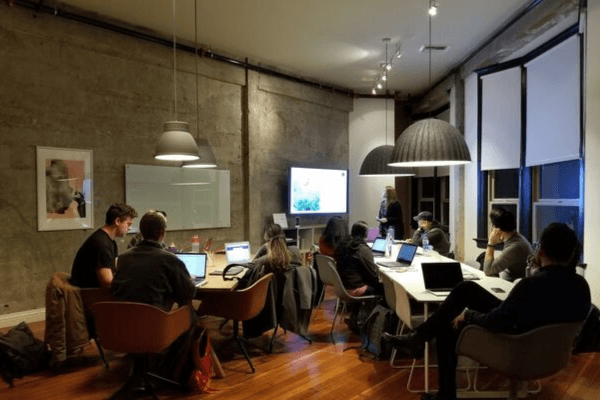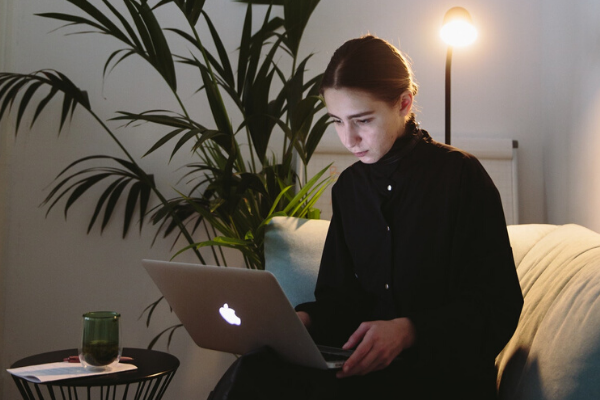How Mindfulness Improves Company Culture
Mindfulness is the practice of being present and aware. When we embed mindfulness into our company culture and train teams to use mindfulness as part of work and life, we can see dramatic improvements in both employee engagement and the success of the company culture.
The mindfulness workshop that I conduct has been chosen by a number of organisations across the UK who are looking to support their team’s work-life balance, and improve their company culture.
And it’s understandable as to why.
While mindfulness has been embraced by many people looking to live healthier and happier lives, many of the practices and techniques can also enable us to build a better company culture.

Enhances Communication
In research conducted by Harvard University on the impact of mindfulness on the physical structures of the brain, it was found that mindfulness can change our brain.
The study conducted by Dr Sara Lazar found that key areas of the brain changed their physical structures when mindfulness practices were conducted for eight weeks.
Just like our body changes its physical structure when we hit the gym, so too does our brain when we practise mindfulness regularly.
The most significant changes occurred in the Amygdala, the area responsible for our fight or flight reaction; and the Hippocampus, the area responsible for empathy.
The Amygdala has reduced in size, which meant the participants reaction to stress was decreased.
The Hippocampus increased in size, which meant the participants were more likely to be compassionate towards others.
Any change in our reaction to stress, and how we empathise with others, all enable us to be better at communicating.
After all, when we’re less stressed, we’re more likely to notice others and when they’re feeling stressed. When we’re more compassionate, we’re then more likely to help our fellow humans.
The science of changing the physical means as people in the workplace, mindfulness can help us to build teams who are better at communicating and more likely to support each other in times of need.
As mindfulness also makes us aware of stepping back and being curious about our thoughts and perceptions of the world, we are also less inclined to judge our colleagues which can reduce conflict.

Builds Self-Awareness
Self-awareness is a soft skill that is becoming vital in the workplace.
95% of people believe they are self-aware, but according to research, this is only true for between 10-15% of people.
With mindfulness, we can increase our self-awareness and become more aware of our own thoughts and feelings and how we may project these onto our colleagues.
By using mindful practices at work, we can remain open and non-judgemental, allowing our selves to ask questions before we react.
Self-awareness can also help to reduce unnecessary conflict as rather than react immediately to a difficult situation; we can assess our thoughts and feelings.
Mindfulness also provides us with an opportunity to reflect on how our actions may impact others in the organisation — ultimately ensuring that we are considerate of our colleagues.
When we practice mindfulness in the workplace, we can build resilience to crucial feedback. As collaboration is key in many organisations, it’s essential that feedback is handled mindfully and is not taken as a personal attack.

Improves Work-Life Satisfaction
By practicing mindfulness in life and at work, we can create a greater sense of fulfilment.
When we use our minds to think about the positive areas of work and life, and how our contribution makes an impact, we can begin to see that we have a sense of purpose.
This is essential for a happy and healthy life, and it can be achieved in any role that you work within.
With mindfulness, it allows us to see bad days or situations as just part of life’s journey, rather than being consumed by a situation which could later affect us mentally or physically.

Reduce the Effects of Stress
When we become stressed, our bodies go into physical and mental chaos. Our brains become foggy and busy with thoughts and emotions; physically, we may begin to sweat, our heart rate increases and our breathing shortens.
A little bit of stress isn’t too bad for us. It can give us the kick, we need to run a marathon or do a public speech, but when we keep getting stressed, that’s when our bodies start to become seriously affected.
The more we get stressed, the bigger our Amygdala grows, and the more often our heart is put under extreme pressure from high blood pressure. This eventually can lead to heart attacks and strokes, if not other chronic pain issues.
In order to reduce the impacts of stress, we need to learn how to bring ourselves down from a state of stress.
Mindfulness can help alleviate stress in a number of ways.
The regular practice of mindfulness can make us aware of the types of situations that put us in a state of stress, so we can learn to avoid them, or create solutions to ensure we don’t get stressed.
Mindfulness can also help us when stressful situations occur by teaching us to breathe and come back to our bodies rather than being carried away with our fears or frustrations.

Increase Creativity
A study by Harvard University discovered that on average people spend 47% of their waking hours thinking about something other than what they’re actually doing.
Our minds are fantastic at wondering off to future or past concerns rather than being fully present in the here and now.
The trouble with this is we fill our minds with so much mental chatter there’s not much room for your thoughts to roam free and build new connections.
Building connections is a key part of our brain’s ability to be creative if we don’t allow our minds time to sit and be still we can’t create new ideas.
When we embed mindfulness in the workplace and in our lives, we can begin to imagine new ideas and become more creative.
Many of us are required to problem-solve or be creative in our roles, yet we don’t give our minds the time or space to do this.

Supports Mental Health
There are a number of public figures and celebrities who are outspoken on the impact that mindfulness has had on their mental health and wellbeing. From Author Matt Haig, Comedian Ruby Wax to Presenter Fearne Cotton.
Mindfulness has become a tool for those not only experiencing mental ill-health but enabling people to become mentally resilient.
By bringing in mindfulness to the workplace and training your team on the mindfulness practices you can use in life, and at work, you build a happier and healthier team.
Mindfulness is a pro-active approach to mental health and can enable us not to become attached to thoughts and feelings which can often send us into a negative spiral of self-judgement.
Instead, using mindfulness, we can become curious about our thoughts and feelings without being carried away.
Using mindfulness, we can improve the company culture to ensure people feel safe and comfortable to talk about mental health, helping to remove the stigma that surrounds it.
We can also provide better support to those struggling with mental ill-health, as the team are more aware and compassionate towards each other.
These are just a few of the ways mindfulness can improve company culture. It’s the tip of the iceberg, as mindfulness continues to be studied, more research reveals the benefits to both our work and our lives.
If you would like to learn more about mindfulness in the workplace, contact me about my Mindfulness Workshop for your team.






